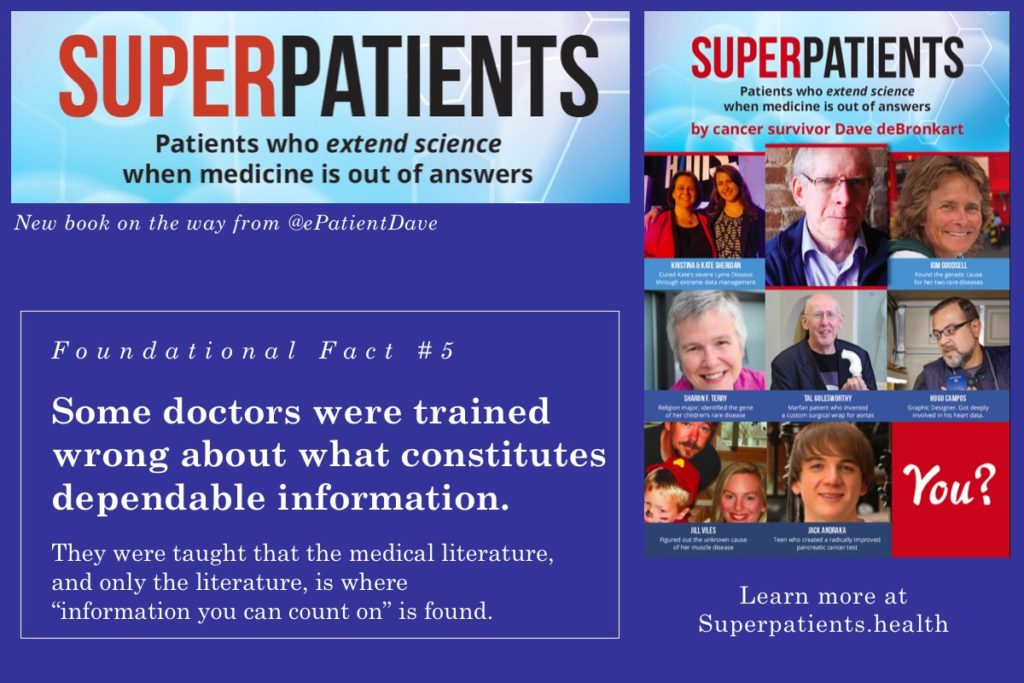Continuing the series started Friday – fourteen foundation truths to set the stage for the upcoming book Superpatients: Patients who extend science when medicine’s out of answers.

A frequent thread in superpatient (and e-patient) stories is when a doctor gives outdated advice about what information deserves our attention. Today’s principle builds on Principle 3, “It’s a myth that doctors can be counted on to know what’s dependable and nobody else can be.” Here’s #5:
Some doctors were trained wrong
about what information’s
dependable.
I’m not saying don’t trust doctors! Obviously medical science works better today than ever before. But Superpatients is about the frontier of medical knowledge. There, the details of who knows what can be decisive, and small errors can have outsized impact. At that frontier, it’s important to know what does and doesn’t deserve trust.
And I’ve had numerous doctors through the years tell me after a speech that they were trained to trust what’s in the literature, and only what’s in the literature.
As we saw in #2, lots of stuff in the literature is shaky pudding. and it’s entirely possible for true stuff to not be there. Consider 19 year old Bronte Doyne, who with her mother had found relevant information that her doctors didn’t know. She died after they told her “Stop Googling” and she obeyed. (It’s sad for the doctors too – they meant no harm, but they’d been trained wrong. They apologized to the bereaved mum.)
If your doctor says “It ain’t real if it ain’t in the literature,” your doc has been trained wrong. “Stay off the internet” is a common theme, which is alarming advice to people who’ve gotten good information online, like me, Jill Viles, Jack Andraka, Kim Goodsell. And just as outdated is the opposite advice – to trust whatever you find in medical journals.
It’s reasonable for superpatients to add to what their doctors have told them. A good doctor won’t object to patients being “information bloodhounds.” Mine didn’t!
Remember the “magic incantation” from Let Patients Help:
I’m the kind of patient
who likes to understand
as much as I can.
Can I ask some questions?
Be respectful of their time; in the US they’re under time pressure from insurance companies. Ask how you can handle questions that come up as you engage in your health – it doesn’t always need to be during appointments. But when you’re at the frontier, don’t be afraid to seek knowledge outside the conventional sources.
Next in the series: #6 There have been profound changes in what’s possible at the fringe of knowledge.


Leave a Reply